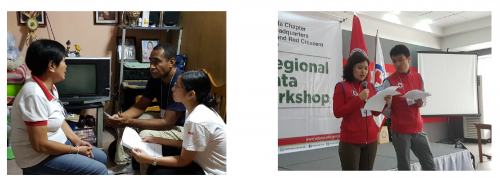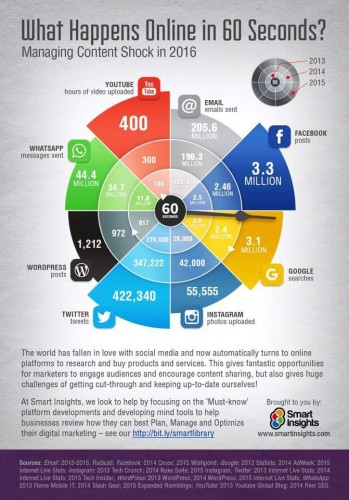[ed. note: Data @ IFRC is a blog series to share highlights from data-driven Red Cross Red Crescent national societies, learning opportunities and thought pieces on all things data from ethics to evidence.]
What resources and frameworks can we draw on to build a data-driven organization? Fortunately on this journey, I have had the opportunity to meet many colleagues working on a variety of thematic areas around the globe. Just in the past week I found myself in a room of civil society data and security leaders, health practioners (community event-based health surveillance) in Geneva with the Norwegian Red Cross, Canadian Red Cross and more, a roadtrip with the American Red Cross to visit a software provider and now I’m in Kenya learning from leaders from across the continent of Africa. Truly, late December will be for distilling and napping.
Mobile Data Collection Training Workshop in Asia (Philippines)
There are many mobile data collection projects and tools used across all the IFRC network. My colleague Miki Tsukamoto recently co-hosted a workshop to collect best practices with many National Societies including Australian Red Cross, Bangladesh Red Crescent Society, the Hong Kong Branch of Red Cross Society of China, Mongolian Red Cross Society, Myanmar Red Cross Society, New Zealand Red Cross, Pakistan Red Crescent Society, Philippines Red Cross, Vanuatu Red Cross and the Vietnam Red Cross Society.

The workshop aimed to combine survey methods, processes and how to use the mobile data collection tool of preference selected by the region. Part of the workshop was practical user testing with a field exercise in Katuhatan (Valenzuela) They worked with volunteers to pilot the questionnaire. I think this is a fantastic way to share best practices in a collaborative way.
Resources everywhere
As we aim to build a data-driven organization, how can we collate relevant resources and obtain guidance both inside the Federation and in the wider networks? One of my core priorities is to create an IFRC Data Playbook. To achieve this goal, I am meeting with people across the Movement and engaging external partners/allies. Their input is invaluable as we co-create this resource. Last week at the Aspiration Non-Profit Software Development Conference, I had the opportunity to meet with a number of people working on Data Literacy topics. Two sessions provided some key questions to think about with data-driven project.
Progress check – (“doable, winnable and replicable”)
1. How can we tell we are making progress.
2. Barriers and Enablers in the Health of Shared Resources.
****
The American Red Cross has been documenting their training materials online. If you are looking to learn more, take a look.(click here) We have a plan to aggregate the multiple data resources to help people on their data journey. This will be done in collaboration and with credit to any individual or organization.

How can we communicate better
Since I joined IFRC, one consistent message is how each team is working to change communications flow with communities. This means we need to understand how some people communicate. While not everyone is online or using social media, the numbers of people on Facebook is still growing. Last week they launched Facebook Community Help for emergencies. I think we can expect more companies to tackle this online.
What about Open Source to support humanitarian work?
Open Source technology supports the backbone of the internet and many organizations. There are a growing number of open source projects across the humanitarian field. Colleagues at ICTWorks created some tips to help guide you.
“Open source, at the end of the day, is one tool of many in increasing impact for stakeholders. Its popularity across all industries and governments is tied to its ability to build faster, smarter technologies. However, building open source in a sustainable way requires approaching it from a developer’s perspective, especially in building a healthy community around any project.”
Read the full article here.
Photos can support your data mission: Climate Change
Data is just part of the story. How can we show impact to augment the data story? The National Geographic shared a series of photos on the impact of Climate Change. Take a look (Click here.)
Information requests
Do you have a data story from the Federation? Please share!